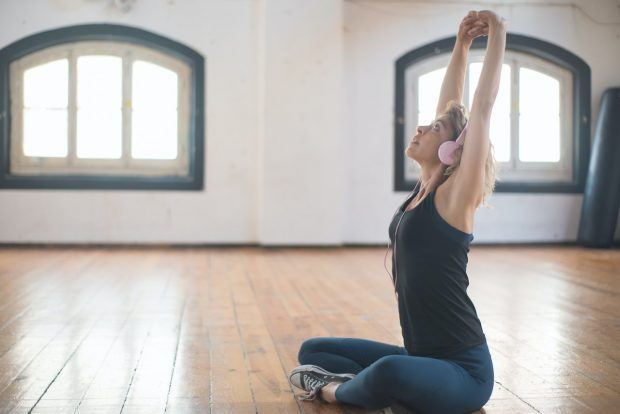Discovered by National Geographic explorer and author Dan Buettner, Blue Zones are regions of the world inhabited by some of the oldest and healthiest people on the planet. Not only are these areas void of disease but their inhabitants have also been found to have better rates of mental wellness.
According to one study, residents of Sardinia, a Blue Zone located in Italy, experienced lower levels of depressive symptomatology and higher levels of self-perceived well-being.
With 2020 seeing a worldwide increase in depression and anxiety by 27.6% and 25.6%, it’s now more important than ever to take charge of our mental health and Blue Zones can teach us exactly how to do so.
Blue Zones Tips To Improve Mental Health
1. Eat a plant-based diet
Residents of Blue Zones adopt a plant-based diet, with one Blue Zone, Loma Linda, housing strict vegetarians. Not only has a plant-based diet been found to promote longevity, but it can also support one’s mental health.
According to a study published in BMJ Nutrition, Prevention & Health, high-quality plant-based diets were associated with a lower risk of depression in vegans and vegetarians.
It should be noted that studies have found that meat consumers also experience lower incidences of depression and anxiety. Now, while you don’t have to remove meat from your diet, we would advise that you have more vegetables than meat on your dinner plate.
2. Find your tribe
While we all enjoy alone time, too much of it can be detrimental to our health.
One study found a strong correlation between loneliness and anxiety, depression, and stress levels. Alternatively, strong social connections have been associated with decreased risks of diagnosed depression and diagnosed anxiety.
The strong social systems that exist in Blue Zones not only contribute to their longevity, but they are sure to also assist in maintaining mental wellness. Whether it’s the lack of old age homes, which create multi-generational homes, or the strong spiritual communities, it’s clear that social connections are the backbone of Blue Zone communities.
In addition to setting aside time for a family dinner or brunch with friends, you can also join a club where you can share your interests or sign up for volunteering.
3. Stay active
There’s no better cure for your mental health woes than by breaking a sweat. A sedentary lifestyle has been associated with an increased risk for anxiety, depression, and lower levels of emotional well-being.
Exercise, on the other hand, has been found to trigger the release of endorphins, which are brain chemicals that can relieve stress and incite euphoria.

Photo by Kampus Production
In fact, one study out of the University of South Australia showed that physical activity is 1.5 times more effective than counseling or the leading medications when it comes to managing mental health conditions.
Residents of Blue Zones may not be spending their days in the gym, but they do stay active. This can range from gardening and housework to taking walks throughout the day.
4. Find your purpose
Referred to as ikigai in Okinawa, a Blue Zone in Japan, or plan de vida in Nicoya, a Blue Zone in Costa Rica, having a sense of purpose can help one live longer.
According to a study from the University of California, people who had a sense of purpose are more likely to feel physically and mentally healthy.
If you’re struggling to find your purpose, Psychology Today advises that you reconnect with old passions, reach out to others and explore and experiment.
5. Manage your stress
Life can be stressful, even in Blue Zones. However, how you manage that stress is what matters.
For some Blue Zone inhabitants, that means unwinding with a glass of red wine, while others might opt for 10-minute nature walks or a praying session.
You can also try meditating, gardening, journaling, or, if you feel that your stress has begun to interfere with your daily life, reaching out for help.
Want to know more?
According to the World Health Organization, 5% of the world’s population currently suffers from depression. While the COVID-19 pandemic, a looming financial crisis, and a climate crisis may explain these numbers, a recent study suggests that french fries may be causing anxiety and depression.





![women [longevity live]](https://longevitylive.com/wp-content/uploads/2020/01/photo-of-women-walking-down-the-street-1116984-100x100.jpg)









